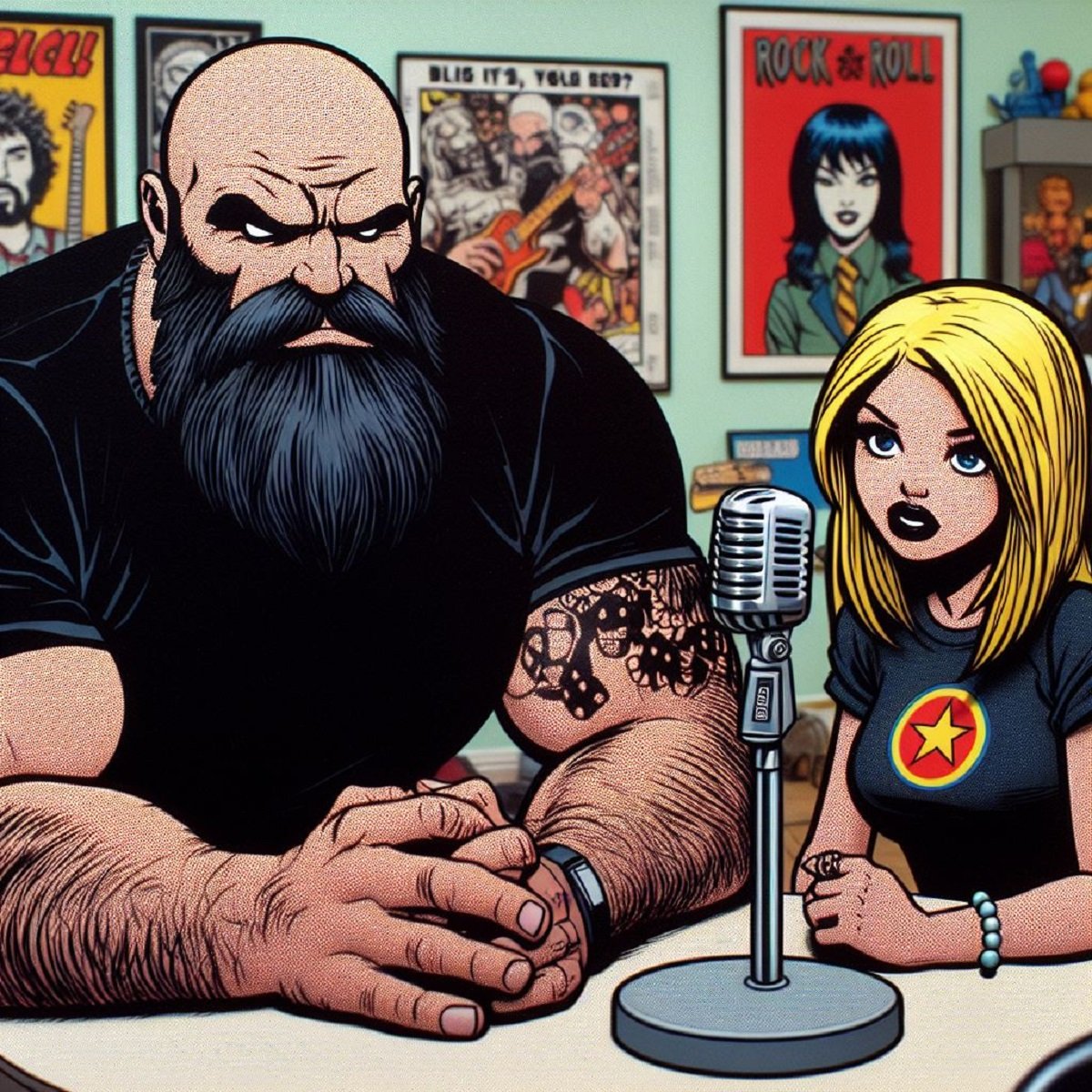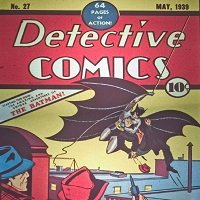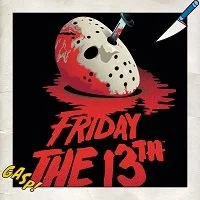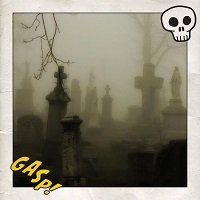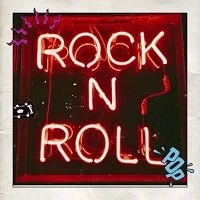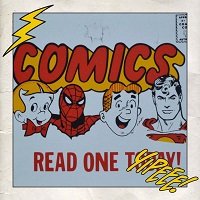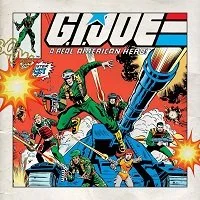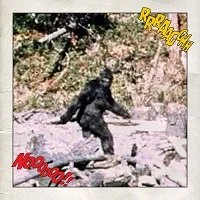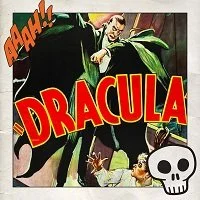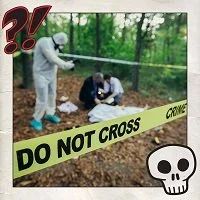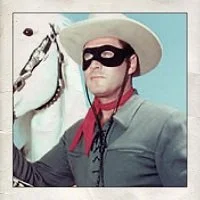Album Reviews: My Top 10 Favorite Albums of 2018
By: Joseph Perry (@JosephWPerryJWP @UphillBoth)
This year saw a wealth of terrific new albums from both established rock acts and bright new talents. Old favorites from Elvis Costello to Saxon to Graham Parker released solid new material, and debuts from bands heavily influenced by their forerunners put fresh spins on classic styles. Here are my 10 favorite albums from 2018. Because each of these records spent plenty of time at the top of my rotation throughout the year, I’m going to list them in alphabetical order, rather than numerical. Honestly, on any given day, according to my mood, any of them could rank number one.
Blackwater Holylight, Blackwater Holylight
Synopsis from my full album review for When It Was Cool: The self-titled debut album from Portland, Oregon’s Blackwater Holylight (RidingEasy Records) is a captivating, hypnotic work that expertly melds together heavy guitar-rock elements with lighter flourishes such as siren-like vocals. This all-female quartet has crafted a truly bewitching album that defies categorization. Touches of 1960s and 1970s hard rock, psychedelic rock, and progressive rock abound, with vocals reminiscent at times of modern alternative rock. Some songs boast Black Sabbath-style riffs combined with vocal harmonies that recall Veruca Salt and Belly, while others tread in more contemporary postpunk waters. Far from being a band that is satisfied with merely relying on tried and true hard rock tropes, Blackwater Holylight shows with its debut album that it knows how to be experimental yet accessible, with one foot in historic rock and the other planted firmly in contemporary territory. The album is colorful and multilayered, with new rewards found in repeated listenings. Expect one of the richest, most unusual rock outings of the year with this one.
Caroline Rose, Loner
Synopsis from my full album review for When It Was Cool: Caroline Rose’s sophomore album Loner (New West Records) is a darkly comic effort, filled with catchy hooks and bright arrangements that often make the singer/songwriter’s sarcastic takes on serious subjects feel more jarring when the lyrics truly sink in. [The album] is filled with a bevy of musical styles, from power pop to surf rock, to classic soul and much more. Rose tackles personal challenges and societal issues with both irreverent, sharp wit and urgent, aching poignancy. Rose finds a mischievous take on both serious matters and lighter ones, as well. In a press release, Rose stated that Loner was “as much inspired by Justin Timberlake and Britney Spears as it was late ‘70s punk.” Personally, the first comparisons I found the album reminiscent of were Nick Lowe and Elvis Costello during their respective Nick the Knife/Nick Lowe and His Cowboy Outfit and This Year’s Model/Armed Forces eras.
Rose played guitar, keyboards, bass, programmed synthesizers and drum machines on Loner, and performed mixing. She not only delivers an astounding, kaleidoscopic set of songs where optimism ultimately outshines heartbreak, she also shows that she is an outstanding artist full of talent and surprises.
Faith Healer, Try;-)
From my full album review for That’s Not Current: On its sophomore album Try ;-) (Mint Records) Canadian (Edmonton, to be exact) indie rock band Faith Healer introduces a slightly more muscular edge to the laid-back psychedelic pop approach of its 2015 debut effort Cosmic Troubles. The dreamy, airy, psych folk by way of 1960s and 1970s singles feel is still gloriously present, but singer and songwriter/guitarist Jessica Jalbert and producer/band member Renny Wilson have expanded on their sound by adding a stronger emphasis on letting guitars rock a bit more. Jalbert’s lovely vocals are ethereal without being fragile, and fit each song splendidly. The guitars ramp things up from Cosmic Troubles with a bevy of catchy guitar hooks that run the gamut from crunchy to mesmeric, mid-tempo and uptempo chord progressions that may bring to mind some classic underground-rock and blues-rock bands, and solos that range from swirling to full-tilt rock. Some playful musical arrangements belie introspective, melancholy lyrical messages, which makes delving into Jalbert’s words and soulful vocals all the more exciting. The band has said that this album was influenced by listening to Leonard Cohen’s Death of a Ladies’ Man, Elvis Costello, Scott Walker, and The Wipers — excellent artists, indeed. Jalbert and Wilson may have learned from these greats, but they have crafted a thoughtful album that provides a unique sonic soundscape that is all their own.
Judas Priest, Firepower
Almost unanimously acclaimed as Judas Priest’s finest album since 1990’s Painkiller, Firepower finds the band unleashing a set of songs that blend its classic heyday sound with modern arrangements and production. Metal legend Rob Halford sounds terrific, and though I always found something interesting on the band’s recent releases, you can feel the renewed energy and inspiration on Firepower blast through your speakers. This is essential listening for metal fans of any era.
Lucy Dacus, Historian
From my full album review for That’s Not Current: Singer/songwriter Lucy Dacus gets heavier — both in her lyrics and style of music — on her brilliant sophomore outing Historian (Matador Records). She takes a bold leap from her wonderful 2016 debut album No Burden and unleashes a turbulent new edge, filled with harder rock and bigger arrangements to convey her heart-achingly emotional reflections on self and those close to her. The album announces this more muscular new side right away with the six-and-a-half-minute opener “Night Shift,” a post-breakup tale. As the story builds in intensity, distorted guitars suddenly kick in and Dacus’s voice works up to a wail somewhere between plaintive and cathartic. Dacus writes about losses of love and life with tender, aching poignancy. Besides the punchier electric guitar touches, Historian adds horns, strings, and other flourishes to Dacus’ arsenal, but her honey-like voice is the star of these songs. The richer arrangements here as compared with No Burden elevate her work to a higher plane, one filled with an abundance of fragile beauty and a sense of strength that relates how life’s hardships can ultimately be overcome, at least until the next one comes along. The ringing, jangling, and blasting guitars that announce Dacus’ more muscular approach to her work are a fine fit with the cautious optimism that runs through her lyrics. She is taking her arrangements, voice, and words to new places, and though she is only at the exciting beginning of her career, she has already unleashed a masterpiece with Historian.
Mick's Jaguar, Fame and Fortune
I haven’t been as excited for a triple-guitar rock and roll attack as I am for Mick’s Jaguar’s debut album Fame and Fortune (RidingEasy Records) since the early stun guitar days of Blue Oyster Cult, and by probably no small coincidence, both bands hail from New York state. Mick’s Jaguar is from New York City proper, and brazenly heralds in a new take on the tough, gritty, rock music heritage of that metropolis. The sextet is all swagger and sweat on their debut, with huge guitar hooks galore and some twin leads, to boot. Though the band’s press kits might deny it, you’ll get a feeling of NYC legends such as Johnny Thunders and the Heartbreakers, Ramones, early Kiss (especially Ace Frehley, considering the occasional charming, catchy corniness of some of the lyrics), and New York Dolls, along with other legendary influences from around the world, including Thin Lizzy, Rolling Stones, and AC/DC. In case you haven’t guessed by now, Mick’s Jaguar should be right up the alley of fans of 1970s heavy guitar rock of all stripes. The lyrics are a blast, too. Check out their song “Damnation” for lyrical rock references aplenty, and expect darkly humorous tales of woe, disgust with modern society, and celebrations of partying through the night throughout Fame and Fortune.
Satan’s Satyrs, The Lucky Ones
Also rooted in 1970s heavy rock — though with a decidedly different sound than RidingEasy Records labelmates Mick’s Jaguar — is Satan’s Satyrs, a fuzz-fueled monster that mashes and bashes together such influences as T. Rex and Sweet with Blue Cheer and Iggy and the Stooges, with some Thin Lizzy thrown in for good measure. If that doesn’t make you want to listen to the album immediately, I’m not sure what else might. The quartet is seasoned and tight (this is its fourth album), the production and performances are a joy to experience, and the songwriting and musicianship muscular and multilayered.
Starcrawler, Starcrawler
From my full album review for That’s Not Current: Starcrawler’s self-titled debut album on Rough Trade should melt the hearts of older listeners who subscribe to the “They don’t make ‘em, like they used to” school of thought, and at the same time capture the imaginations of younger listeners looking for energetic, brazen, guitar-driven rock and roll with an edge. This longplayer sounds like the band listened to as much boisterous, dangerous rock music from the 1970s as possible, and then wanted to play about their enthusiasm for it, adding their own unique stamp to the mix, with lyrics tackling the spirit of teenage independence and rebellion. Produced by Ryan Adams and recorded on analogue tape, Starcrawler showcases a raw young band, full of verve and talent. The album flies by at about 28 minutes, sporting heaps of distorted guitar aided by a raucous rhythm section. Guitarist Henri Cash, who is still in high school, roars through several different styles, from the fuzzed-out slowness reminiscent of Black Sabbath (“Chicken Woman,” “What I Want”) to a more riotous churn like The Sex Pistols and The Stooges traded in (“I Love L.A.”, “Let Her Be”), and beyond. Arrow DeWilde handles the majority of the lead vocals, occasionally sharing duties with Cash. Her vocals are a perfect match for the raucous proceedings, and she gets to stretch out a bit more on the album’s quietest track, “Tears.” Starcrawler, above all, is keeping rock and roll alive.
Svvamp, Svvamp 2
RidingEasy Records act Svvamp, a Swedish trio, take things back even further than their three labelmates mentioned earlier in this list with their sophomore album Svvamp 2. There’s a 1960s vibe throughout the album, ranging from laid-back and smile-inducing to heavier, head-nodding stuff. Most arrangements are blues-rock–influenced, and the guitars either ring brightly or offer up plenty of fuzzy psych tones. The lyrics are heady, dreamy, and full of optimism and verve. Svvamp has obviously listened to plenty of The Kinks, Creedence Clearwater Revival, Cream, and Blue Cheer, and found its own modern approach to classic rock of that era.
Erika Wennerstrom, Sweet Unknown
Erika Wennerstrom of Heartless Bastards unleashed Sweet Unknown (Partisan Records), an inspirational, uplifting solo album filled with anthems that sometimes recall Darkness on the Edge of Town/The River-era Bruce Springsteen and U2. The rumbling percussion and feedback- and-distortion-laden guitar of the album’s kick-off track, “Twisted Highway,” grab your attention right away and set the pace for this set of songs about self-exploration and the journey of life. Wennerstrom’s passionate vocals are a joy, and Sweet Unknown is one of the most heartfelt albums in recent memory.
If you haven’t heard some of these acts before, I hope you will have fun exploring them. Few rewards in life are greater than finding incredible new music. Happy new year, and here’s to another great year of rock in 2019!
Joseph Perry is one of the hosts of When It Was Cool’s exclusive Uphill Both Ways podcast (whenitwascool.com/up-hill-both-ways-podcast/) and Gruesome Magazine’s Decades of Horror: The Classic Era podcast (decadesofhorror.com/category/classicera/). He also writes for the retro pop culture website That’s Not Current (thatsnotcurrent.com), Diabolique Magazine (diaboliquemagazine.com), Gruesome Magazine (gruesomemagazine.com), Scream Magazine (screamhorrormag.com), Ghastly Grinning (ghastlygrinning.com), and several other print and online film critique and pop culture magazines.
If you found this article interesting consider becoming a Patreon supporter. That is how When It Was Cool keeps our website and podcasts online, plus you get lots of bonus content including extra and extended podcasts, articles, digital comics, ebooks, and much more. Check out our Patreon Page to see what's up!
If you don't want to use Patreon but still want to support When It Was Cool then how about a one time $5 PayPal donation? Thank you!
